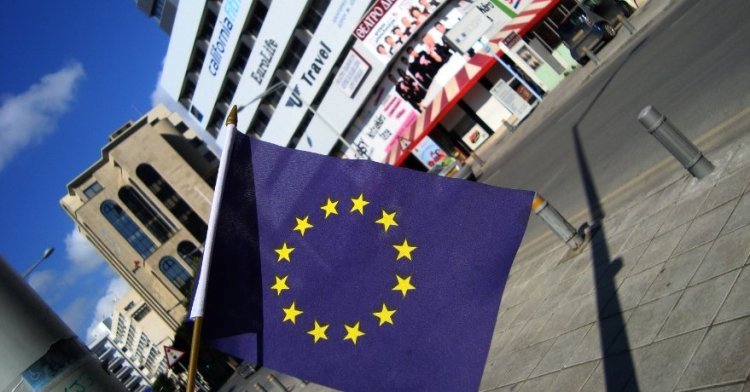Article 49 of the Treaty of the European Union states that any European country may apply for membership if it meets certain criteria and the EU has the capacity to absorb new members. Having applied in 1987, it took until 1995 for a mutual customs union agreement that smoothened the path for further economic integration. In 1999 then, Turkey was formally recognized as a candidate country but needed to comply with a number of further political and economic requests before entering accession negotiations. Having completed those, in 2005 formal accession talks began which are, however, still far from concluded. Whilst the early 2000s saw swift and decisive progress in many critical areas, in the latter half of the decade reforms slowed to almost stall-speed. Nonetheless, the on-going Turkish determination to modernise is impressive and admirable.
Cyprus major barrier for Turkish EU-accession
However, the progress in EU-Turkey accession talks is likely to be terminated or even reversed. The cause for this is a geographically small island in the Eastern Mediterranean with a disproportionate political impact: Cyprus. Being divided into a Greek and a Turkish part since 1974, it has always been a source of conflict between both nations. Now, with the Greek Republic of Cyprus as official member state of the EU, the tensions have spilt over into the Turkish-EU relationship and have impeded accession talks ever since. With Turkey not recognizing the Southern, Greek part of the island as a sovereign state and excluding their sea and air traffic from its ports, integration progress has been significantly bedevilled. As the Greek Republic of Cyprus is a member in the European Council, it has a strong voice in the committee and, retaliating to Turkey’s measures, was able to lobby other European states to slow down Turkey’s accession. Furthermore, as the accession of a new EU member has to be ratified by all current EU states, each country, including Cyprus, has a de facto veto right over further enlargement.
New found gas deposits raise economic tension
Last summer, this already complex situation has been made even more complicated. Having found large natural gas deposits, the Republic of Cyprus recently initiated their exploitation. This added an economic dimension to the charged political situation as the expected revenues are estimated to be very significant. As those deposits were found in the exclusive economic area (EEA) of the Republic of Cyprus, their exploitation is, in fact, generally regarded as legitimate under international law and according to the UN Convention on the Law of the Seas. Nonetheless, as Turkey does not recognize the Greek Cypriot state, it disputes all claims of Cyprus. This resulted in the Turkish government sending their own exploratory mission in the region to lay claim on the gas deposits. Calling Greek Cypriot actions an “act of provocation”, Turkey’s Prime Minister Recep Tayyip Erdogan stated at the time that Turkish “frigates, gunboats and its air force will constantly monitor developments in the area”.
“Half-country leading a miserable union”
Consequently, Turkish Cypriots did not watch their Greek neighbours prepare for their international role with a light heart. It went as far as Turkey’s president Abdullah Gul expressing in November 2011 the Turkish sentiments as labelling the Cypriot Presidency as “A half-country leading a miserable union”. Prime minister Erdogan went even further by threatening to interrupt diplomatic relations with the EU. This is an unprecedented step of a candidate country. This aggressive rhetoric against an EU state understandably shocked European officials.
In the meantime the political temperature has somewhat lowered. With the Presidency already a month in force, Osman Ertug, a spokesperson for the Turkish Cypriot community, admitted that there’s no real link between the Cypriot EU-leadership and the Cypriot question, besides that the Presidency “will boost the self-confidence of the other side”.
Best moment for fostering Cypriot reunification
EU leaders should grasp the Presidency to settling this conflict. It should be a vital priority to pave the way towards Cypriot reunification, under a federal roof. This will bring peace to the island and remove a big obstacle to Turkey’s EU accession. Even though this might sound like a utopian plan, the opportunity for it now is better than ever. EU Enlargement Commissioner Stefan Fuele agrees and said that indeed, the Presidency holds a good opportunity to make “other EU countries more aware of the situation of the divided island”. He added that the EU must “inject a new sense of urgency to solve the Cyprus problem”.
Solution: carrots and sticks on both sides
What is to be done? A combination of carrots and sticks towards both Cyprus and Turkey is the best approach at this point. Through their rather large annual payments to Cyprus, the EU does have the necessary leverage to induce them to compromise through concessions. The Commission can also point towards likely economic benefits for their commerce and tourism if Turkish ports and airports are opened. The aim would be to reduce Cyprus’ resistance to reunification and Turkey’s EU accession. Towards Turkey, the EU should pursue a similar line: it must make clear that the solution of the Cyprus question is vital to continued progress in the enlargement talks and cooperation with the EU in general. Seeing a mutually accepted Cypriot reunification plan, Turkey would be able to continue cooperation with the EU and advance accession talks, whereas Greece and Cyprus would be more willing to accommodate Turkey’s requests in this matter.
With Cyprus pacified and Turkey well on its way to EU membership, Abdullah Gul’s statement could be turned on its head: A full Cypriot presidency would lead to a successful union! But time is running. Decisive action is crucial now to ensure the continuation of European unification.


Follow the comments: |
|
